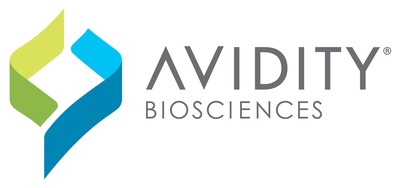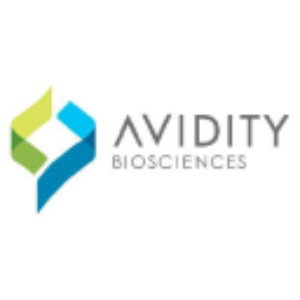Avidity Biosciences Engages with Patient Communities During National Muscular Dystrophy Awareness Month as part of Commitment to Developing Muscular Dystrophy Programs
Avidity Biosciences (Nasdaq: RNA) is poised to advance three muscular dystrophy programs into clinical trials by the end of 2022. In conjunction with National Muscular Dystrophy Awareness Month, the company will engage with patient communities and partake in several events, including the MDF Annual Conference and the FSHD Society's Walk and Roll. The lead program, AOC 1001, targets myotonic dystrophy type 1. Avidity's innovative Antibody Oligonucleotide Conjugates (AOCs™) aim to address previously untreatable rare diseases.
- On track to have three muscular dystrophy programs in the clinic by the end of 2022.
- Lead product AOC 1001 is in Phase 1/2 development with the ongoing MARINA™ trial.
- Engagement activities with patient communities to enhance support and awareness.
- Clinical development remains unproven and relies on future trial results.
- Company may face potential delays in clinical trials or regulatory approvals.
- Dependence on third parties for clinical testing and product manufacturing could pose risks.
Insights
Analyzing...
Company remains on track to have three muscular dystrophy programs in clinic by end of year
SAN DIEGO, Sept. 7, 2022 /PRNewswire/ -- Avidity Biosciences, Inc. (Nasdaq: RNA), a biopharmaceutical company committed to delivering a new class of RNA therapeutics called Antibody Oligonucleotide Conjugates (AOCs™), honors National Muscular Dystrophy Awareness Month, an annual observance that raises awareness for families across the nation who are living with neuromuscular diseases. This month Avidity will also raise awareness and support patient-focused activities for World Duchenne Awareness Day on September 7 and International Myotonic Dystrophy Awareness Day on September 15. Avidity is on track to have three rare muscular dystrophy programs in the clinic by the end of this year for myotonic dystrophy type 1 (DM1), Facioscapulohumeral muscular dystrophy (FSHD) and Duchenne muscular dystrophy (DMD).
"We look forward to engaging with patient communities and their families this month to better understand their unique journeys and experiences. We are excited to welcome many of our partners here to San Diego where we will be participating at the MDF Annual Conference, FSHD Society's Walk and Roll to Cure FSHD, and the Global Genes RARE Patient Advocacy Summit," said Sarah Boyce, president and chief executive officer. "At Avidity, we are committed to listening, learning and partnering with the patient and advocacy community as part of our mission to improve the lives of people affected by serious rare diseases. We are on track to have three rare muscular dystrophy programs in the clinic by the end of this year."
In support of Muscular Dystrophy Awareness Month, Avidity will be engaging in various activities with patient and advocacy communities including:
- Welcoming patients and families to tour Avidity's office during the 2022 Myotonic Dystrophy Foundation (MDF) Annual Conference, an event to unite community, care and a cure for myotonic dystrophy
- Supporting Jett Foundation's Stronger than Duchenne World Duchenne Awareness event
- Recognizing International Myotonic Dystrophy Awareness Day as a proud member of the Global Alliance for Myotonic Dystrophy Awareness
- Joining in the FSHD Society's 2022 Walk & Roll to Cure FSHD in San Diego, the only international event focused solely on funding progress for FSHD
- Participating in the 2022 Global Genes RARE Patient Advocacy Summit, one of the world's largest gatherings of rare disease patients, caregivers, advocates and healthcare professionals
About Myotonic Dystrophy Type 1
Myotonic dystrophy type 1 (DM1) is an underrecognized, progressive and often fatal disease caused by a triplet-repeat in the DMPK gene, resulting in a toxic gain of function mRNA. The disease is highly variable with respect to severity, presentation and age of onset, however all forms of DM1 are associated with high levels of disease burden and may cause premature mortality. DM1 primarily affects skeletal and cardiac muscle, however patients can suffer from a constellation of manifestations including myotonia and muscle weakness, respiratory problems, fatigue, hypersomnia, cardiac abnormalities, severe gastrointestinal complications, and cognitive and behavioral impairment. Currently, there are no treatments for people living with DM1.
About Facioscapulohumeral muscular dystrophy (FSHD)
Facioscapulohumeral muscular dystrophy (FSHD) is characterized by progressive and often asymmetric skeletal muscle loss that initially causes weakness in muscles in the face, shoulders, arms and trunk and progresses to weakness in muscles in lower body. FSHD is an autosomal dominant genetic disease, meaning a single copy of the disease-associated gene, DUX4 (double homeobox 4), is enough to cause the disease. The abnormal expression of DUX4 leads to a series of downstream events that result in skeletal muscle wasting and compromised muscle function, including an inability to lift arms for more than a few seconds, loss of ability to show facial expressions and serious speech impediments. These symptoms cause many people affected by FSHD to become dependent on the use of a wheelchair for mobility. Currently there are no approved treatments for people living with FSHD.
About Duchenne muscular dystrophy (DMD)
Duchenne muscular dystrophy (DMD) causes a lack of functional dystrophin that leads to stress and tears of muscle cell membranes, resulting in muscle cell death and the progressive loss of muscle function. The dystrophin protein maintains the integrity of muscle fibers and acts as a shock absorber through its role as the foundation of a group of proteins that connects the inner and outer elements of muscle cells. People living with DMD suffer from progressive muscle weakness that typically starts in boys at a very young age. Those living with the condition often require special aid and assistance throughout their lives and have significantly shortened life expectancy. While there are treatments approved to treat people with DMD, it remains a very high unmet need.
About Avidity
Avidity Biosciences, Inc.'s mission is to profoundly improve people's lives by delivering a new class of RNA therapeutics - Antibody Oligonucleotide Conjugates (AOCs™). Avidity's proprietary AOCs are designed to combine the specificity of monoclonal antibodies with the precision of oligonucleotide therapies to target the root cause of diseases previously untreatable with RNA therapeutics. Avidity is on track to have three programs in clinical development by the end of 2022. The company's lead product candidate, AOC 1001, is designed to treat patients with myotonic dystrophy type 1 (DM1). AOC 1001 is currently in Phase 1/2 development with the ongoing MARINA™ trial and MARINA-OLE™ in adults with DM1. The next programs in the company's advancing and expanding pipeline are AOC 1044, the lead of three programs for the treatment of DMD, and AOC 1020, designed to treat people living with FSHD. Avidity anticipates both programs will enter the clinic by the end of 2022. Avidity is also broadening the reach of AOCs beyond muscle tissues through both internal discovery efforts and key partnerships as the company continues to deliver on the RNA revolution. Avidity is headquartered in San Diego, CA. For more information about our science, pipeline and people, please visit www.aviditybiosciences.com and engage with us on LinkedIn and Twitter.
Forward-Looking Statements
Avidity cautions readers that statements contained in this press release regarding matters that are not historical facts are forward-looking statements. These statements are based on the company's current beliefs and expectations. Such forward-looking statements include, but are not limited to, statements regarding: the progression of clinical programs for AOC 1001, AOC 1044 and AOC 1020 and timing thereof; and the broad potential of AOCs to treat serious diseases of skeletal muscle and other tissues and cell types. The inclusion of forward-looking statements should not be regarded as a representation by Avidity that any of these plans will be achieved. Actual results may differ from those set forth in this press release due to the risks and uncertainties inherent in the business, including, without limitation: Avidity is early in its development efforts; Avidity's approach to the discovery and development of product candidates based on its AOC platform is unproven, and the company does not know whether it will be able to develop any products of commercial value; potential delays in the commencement, enrollment and completion of preclinical studies or clinical trials; the success of its preclinical studies and clinical trials for the company's product candidates; the results of preclinical studies and early clinical trials are not necessarily predictive of future results; Avidity's dependence on third parties in connection with preclinical and clinical testing and product manufacturing; unexpected adverse side effects or inadequate efficacy of its product candidates that may limit their development, regulatory approval and/or commercialization, or may result in recalls or product liability claims; regulatory developments in the United States and foreign countries, including acceptance of INDs and similar foreign regulatory filings and the proposed design of future clinical trials; Avidity could use its available capital resources sooner than it currently expects; disruption to its operations from the COVID-19 pandemic or the war in Ukraine; and other risks described in prior press releases and in filings with the Securities and Exchange Commission (SEC). Avidity cautions readers not to place undue reliance on these forward-looking statements, which speak only as of the date hereof, and the company undertakes no obligation to update such statements to reflect events that occur or circumstances that exist after the date hereof. All forward-looking statements are qualified in their entirety by this cautionary statement, which is made under the safe harbor provisions of the Private Securities Litigation Reform Act of 1995.
Investor Contact:
Kathleen Gallagher
(858) 401-7900 x550
investors@aviditybio.com
Media Contact:
Navjot Rai
(858) 401-7900 x550
media@aviditybio.com
![]() View original content to download multimedia:https://www.prnewswire.com/news-releases/avidity-biosciences-engages-with-patient-communities-during-national-muscular-dystrophy-awareness-month-as-part-of-commitment-to-developing-muscular-dystrophy-programs-301618889.html
View original content to download multimedia:https://www.prnewswire.com/news-releases/avidity-biosciences-engages-with-patient-communities-during-national-muscular-dystrophy-awareness-month-as-part-of-commitment-to-developing-muscular-dystrophy-programs-301618889.html
SOURCE Avidity Biosciences, Inc.








